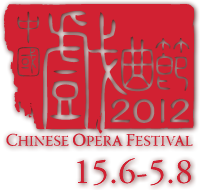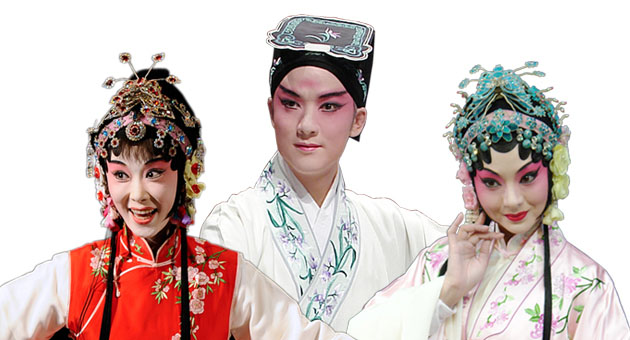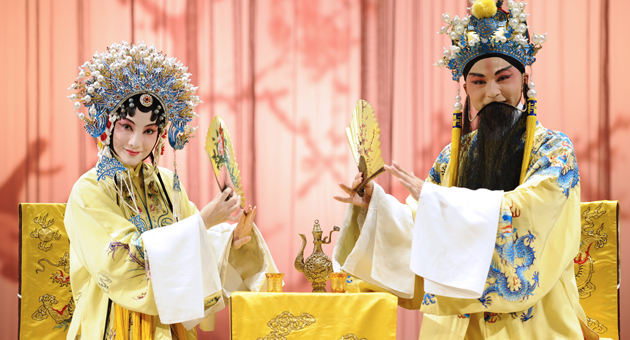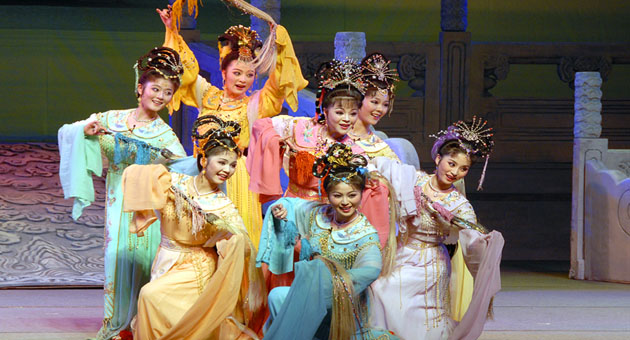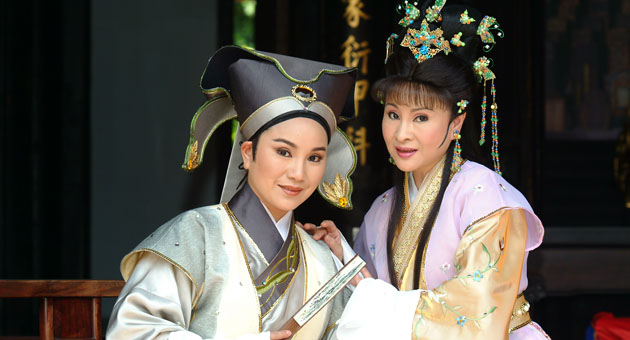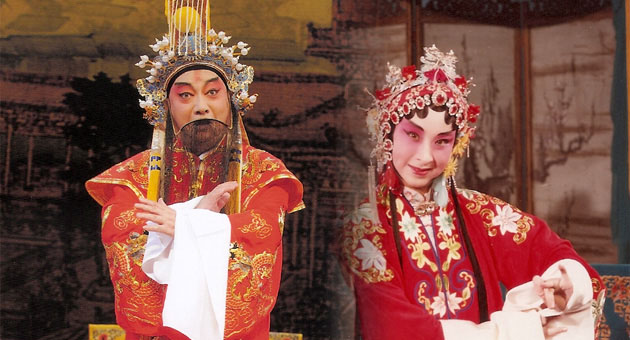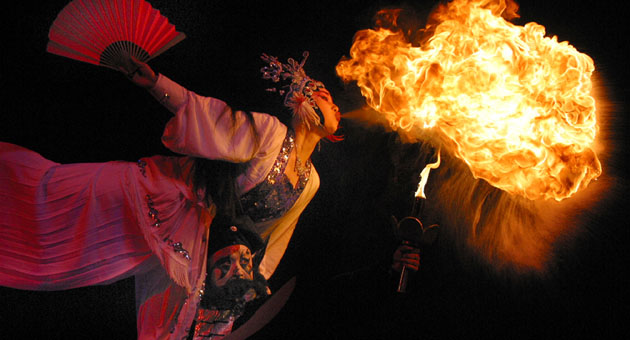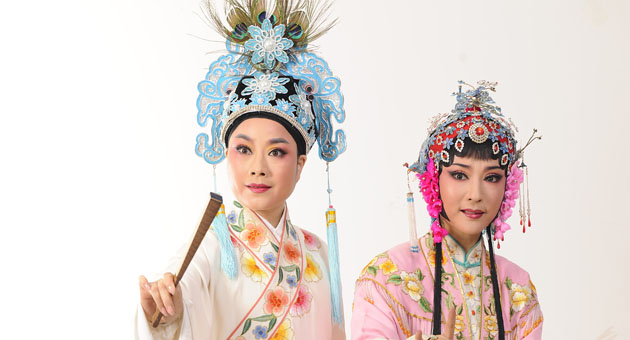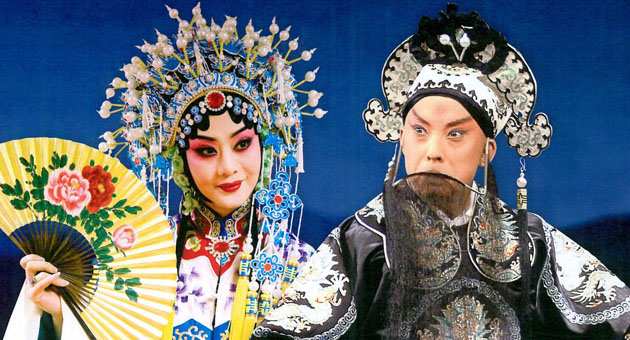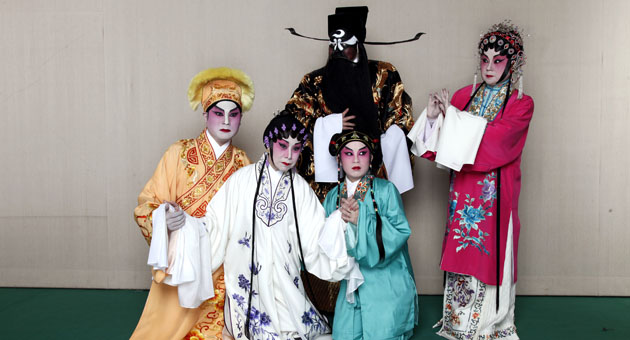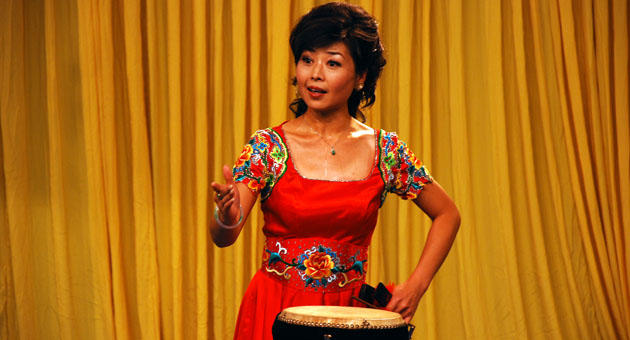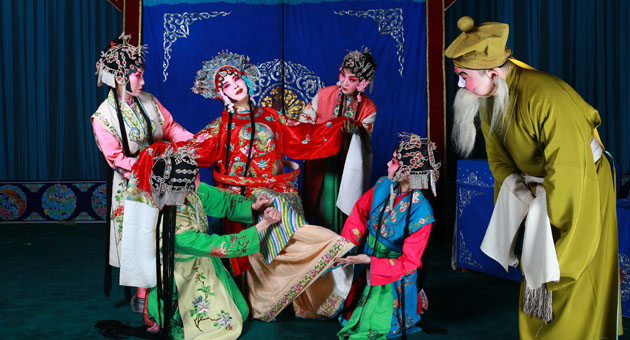Kunqu - Romantic Theatre at Its Best and Its Perpetuation
Pai Hsien-yung
Kunqu was inscribed onto the first list of ‘Masterpieces of the Oral and Intangible Heritage of Humanity’ by the United Nations Education, Science and Culture Organisation (UNESCO) in 2001. The list was the first ever, formal overview of ethnic cultures of the world, and the first proclamation that reminds humankind to treasure our cultural heritages and ensure their continuity. The honour conferred on Kunqu brought timely attention to this declining art form, and subsequently, the pro mise of a new lease of life.
With its long history of six hundred years, Kunqu has also had its heyday in the first half of the 17th Century, and its artistic merits are long recognized. But it met its demise in the early 20th Century when China suffered a long period of social unrest. The troupes were disbanded, and the artists had to fend for themselves. With no actors on stage and no new blood to perpetuate the art, this caused a gap and a deadly blow to Kunqu as a ‘living’ art.
Fortunate for us, an art form of such distinguished cultural significance has a tenacity of its own; and with the right opportunity, it revived itself. And fortunate for me, who was able to partake the gratifying joy of watching a Kunqu performance when I was young, I had the opportunity to become closely associated with it later in life through producing several Kunqu productions. Yet in the process, as I understood the art form better, I was burdened with more worries. I could see fine actors and senior virtuosi forced to bow out with the passage of time. In a bid to salvage the art from disappearing, I – and some like-minded friends – took it upon ourselves to carve out a stainable future.
In 2004, I started the staging of a ‘youth version’ of The Peony Pavilion. I handpicked young actors trained at the Suzhou Kunqu Opera Theatre of Jiangsu Province. I was fortunate again to have the two gems, Yu Jiulin and Shen Fengying, to play the lead roles. They have been considered the incarnate of the two lovers who can transcend the worlds of the dead and the living as created by Tang Xianzu. However, there is another even more important meaning to the creation of The Peony Pavilion (Youth version), which is the revival of the mentoring tradition. I invited two of the greatest names in Kunqu, Wang Shiyu and Zhang Jiqing, to be the mentors of Yu and Shen respectively. A formal kowtow ceremony was conducted to make Yu and Shen aware of the significance of becoming the ‘disciple’ of a master performer and the values attached. In our staging of The Story of the Jade Hairpin in 2009, we had the honour to have another pair of legendary actors, Yue Meiti and Hua Wenyi, as lead stars. Also, since 2010, we have been sending young actors to learn from famous veterans their prized repertoire. Tao Hongzhen and Qu Binbin learned Lanke Mountain from Zhang Jiqing and Yao Jikun; Tang Rong and Shen Guofang learned Accompanying Jingniang for Thousands of Miles from Hou Shaokui and Qiao Yanhe; Zhou Xuefeng and Shen Fenying learned The Palace of Eternal Life from Cai Zhengren and Zhang Jingxian; Liu Chunlin learned The Mistake Caused by a Kite from Liu Yilong; Lu Jia learned The Story of the West Chamberfrom Liang Guyin; and Chen Lingling learned The Pavilion of Chanting in the Wind from Wang Weijian. It was a gargantuan and costly feat, as all those involved had to devote a lot of time and energies for the training. But the venerable teachers were willing to pass their expertise and insights to the younger generation. It was obvious that they were of one mind to keep a great heritage and a grand tradition going by contributing their artistic best.
The result of the arduous training of the young actors from the Suzhou Kunqu Opera Theatre of Jiangsu Province will be seen in this year’s Chinese Opera Festival. Kunqu is a theatrical art form that requires one-on-one mentoring. Through the training process, both the mentor and the mentee need to put in dedication, zeal, hard work and sharing of experience. It is the one and only way to perpetuate the art. We can also say therein Kunqu sees new light.
PAI HSIEN-YUNG is an internationally acclaimed author. He had founded the Modern Literature magazine. His publications include the collection of short stories Lonely Seventeen, Taipei People, The New Yorker, a collection of prose writing Suddenly The Past, the novel Crystal Boys etc. Pai has been keenly interested in Kunqu Opera since a young age. His short story Wandering in the Garden and The Interrupted Dream was inspired by the Kunqu Opera, The Peony Pavilion. His love for Kunqu Opera has made him actively involved in introducing it to the younger generation. He has been giving public talks in conjunction with Kunqu artists of Hong Kong and Taiwan. Producing the ‘youth version’ of The Peony Pavilion in 2004 has made sensational hit in the circle of Xiqu and drawn overwhelming attraction in tertiary institutions.


